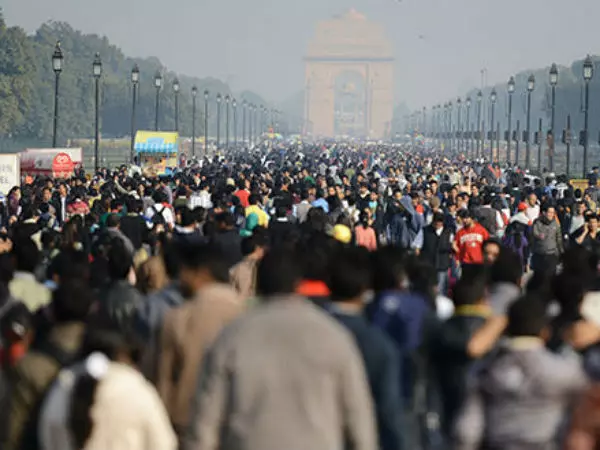
India's claim for UN Security Council strengthened now: UN Expert
text_fieldsUnited Nations: Being the most populous nation on the planet could strengthen India's claim for a permanent seat on the UN Security Council, says a UN population expert.
UN Population Division Director John Wilmoth said on Monday India's emergence as the most populous nation could lead to "certain claims on things".
The World Population Prospects report projected India's population to be 1.429 billion next year when China's would be at 1.426 billion.
Wilmoth was asked about the significance of the change in global population rankings that he said would happen next year four years sooner than earlier projections.
He replied, "I wonder what will happen in terms of the discussion around roles at the UN and the roles of the Permanent Five members of the Security Council if India becomes the largest country (and) they may think that gives them a claim?"
"They've been claiming that they should be part of that group (of permanent members) anyway, but, you know, it may strengthen their claim," he added.
While the previous reports had expected India's population to overtake China's in 2027, the timeline changed to next year because of updates to the data about China, he said.
China had conducted its census in 2020, while India could not hold it as scheduled in 2021 because of the Covid-19 pandemic.
November 15 will mark a milestone for the global population when the eight billionth baby is projected to be born.
Assistant Secretary-General Maria-Francesca Spatolisano said that on that day the world's population will cross the 8 billion-mark.
She said, "This historic moment calls for celebration: population growth is a tangible sign of our collective success in improving the living conditions of everyday people".
But it will also pose challenges for development as the needs of the growing population would have to be met.
Discussing the population dynamics of the two most populous countries, Wilmoth said that India's gradual approach of reducing population growth could be better in the long run.
China's population growth reduction slowed very rapidly because it was done in "a more drastic way" in the 1970s and 1980s and was "very effective", he said.
But "It also inverted the age distribution and now they're concerned in China about the top-heavy nature of the age distribution, more and more older people relative to the rest of the population", he said.A
On the other hand, he said, "India had a much smoother transition, it brought the fertility rate down more slowly".
"That means there aren't the same kind of discontinuities in the historical patterns and there hasn't been the same very rapid ageing of the population, although ageing will come there as well, but it's just it will be a more gradual process", he said.
He added, "And in some ways that may be better to manage a better circumstance in the long run, for the economy to have that kind of more gradual demographic change than the very rapid change that's happened in China".






















